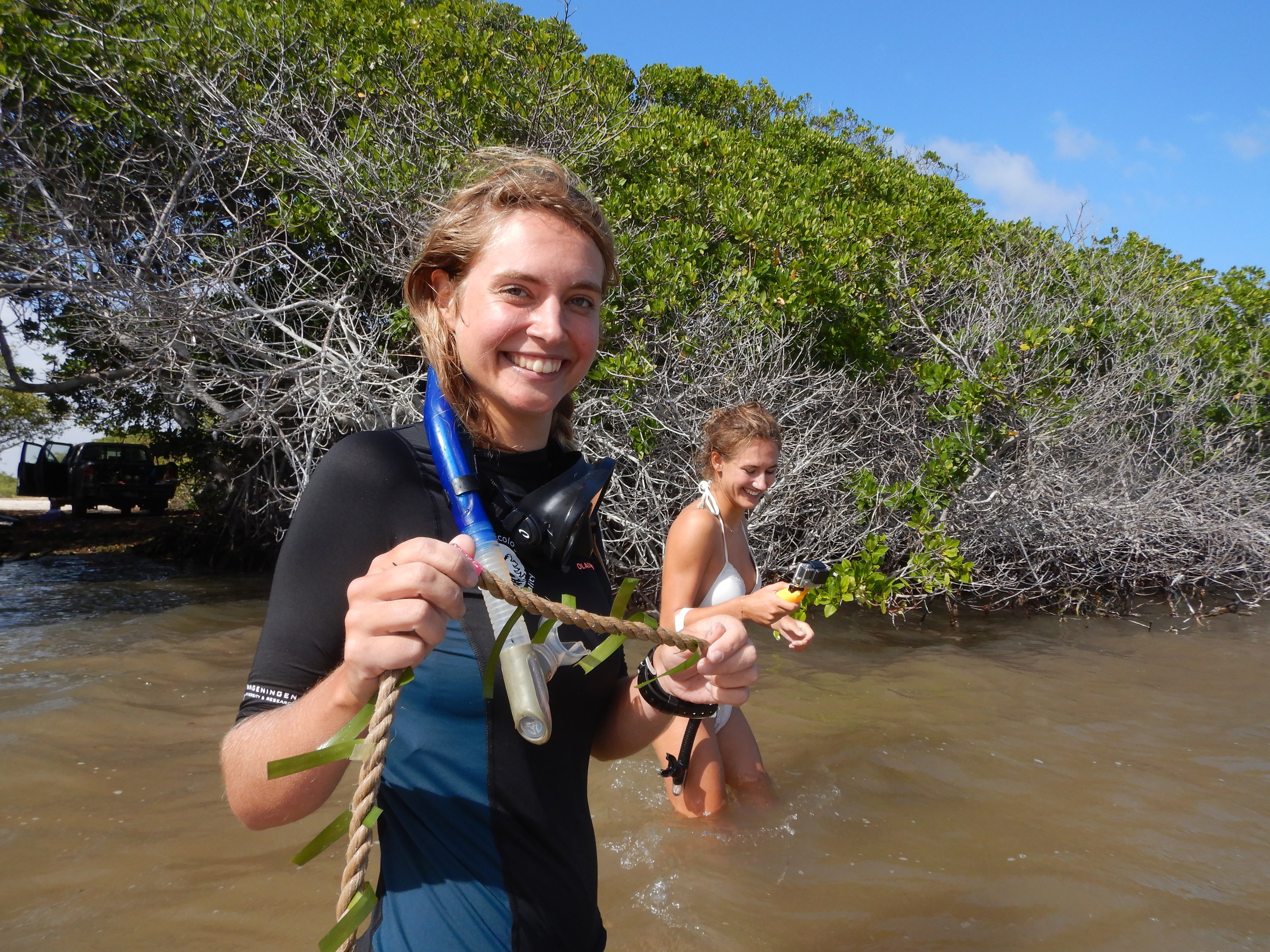Bonaire fieldtrip January 2019
This year kicked off with a 5 week fieldwork trip to Bonaire.
Already 8 months had passed since we started our fish exclusion experiment that’s part of a region wide experimental network. The 8mo sampling moment included taking pictures of the experimental plots, assessing shoot densitities and productivity in each of the 50 plots and burying a total of 100 teabags to measure decomposition rates in the sediment. We spend a lot of time underwater and in the ‘lab’(=our apartment) and concluded the work in one week with the three of us: Olivier our field assistant, Julia Msc student of Utrecht and me.
Next up was maintenance and monitoring of our turtle exclosures, and the start of a few pilot studies, including an aquarium or mesocosm experiment.
Another large part of this field trip was conducting the seagrass monitoring of Lac Bay.
Eight times we went out with the boat and in total visited 49 GPS points in the Bay, that are revisited once every two years. We assessed seagrass presence in different parts of the bay, and we use this data to follow the expansion of the invasive seagrass throughout the bay.
Last but not least, we had a visit of my chairgroup Aquatic Ecology and Water Quality Management of Wageningen University & Research. The group had a full program for five consecutive days. They visited the key ecosystems on the island and addressed several issues. We talked among others about the impact of overgrazing by goats and donkeys on erosion and subsequent coral degradation, the impact of increasing tourist pressure on marine ecosystems, mangrove expansion into Lac Bay and pollution in coastal waters by sewage/landfills/plastic. We used the broad knowledge of the group to brainstorm and discuss several key problems and possible solutions. This week inspired me to think in long-term concepts concerning research and nature conservation on Bonaire, and to broaden my scope to various issues. I particularly enjoyed conducting research on the reef (for the first time since 2015) and on land and combining those activities. Once again I was reminded of the importance of research communication and our obligation to do so.
Thanks to Stinapa for supporting us throughout this fieldtrip with logistics (boat use) and knowledge, they are of great help for researchers on Bonaire.















